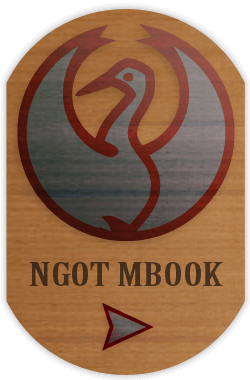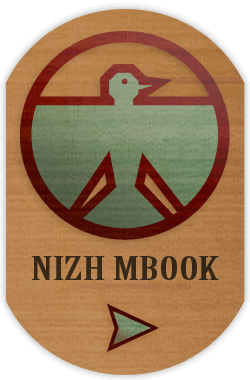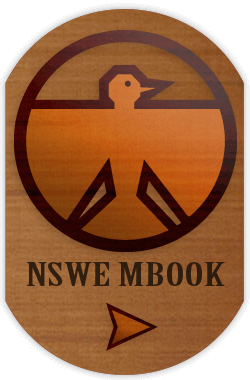Bodwéwadmimwen Miné Neshnabé Zetthkéwen
Potawatomi Language & Culture
The Language & Culture Department is dedicated to keeping the Bodwéwadmi language and traditions alive for future generations by educating our youth in traditional practices, language and values. The Bodwéwadmi Language and Culture program has traditional events that occur annually. The primary objective of the program is to teach and preserve the language. Language classes are held during the school year at different times in the community such as Carter, Wabeno, Blackwell, Crandon and Stone Lake to accommodate all community members. – Billy Daniels Sr. Under the guidance of Tribal Elders, the Language/Culture classes and events incorporate tradition and cultural values into activities. The events that are sponsored are seasonal according to traditional practice.

-by Jim Thunder
I have been aware for some time that our people who have studied the Potawatomi language in college or in some other type of formal school setting are not able to read the old writings that have been left by some of our departed Elders. So with this in mind, I hope to set down on paper some of the complexities involved in reading and writing in the original Potawatomi style.
As a youngster I used to watch my father reading out of these old books, so I had the opportunity to look at them. He would see me and recite the Indian alphabet to me. If my attention started to wander, he would terminate the instructions then and there. Later in my life, if I happened to be at home between jobs, I would study some of these books. However, it was while my father was in the sanitarium that he started writing to me in Indian and I used to reply in English. After awhile I got real good at reading his letters. As my mother did not speak English, this delighted her very much. This exchange of letters went on for some time until one day I got brave and decided to answer him in our language. From that time on I was able to read and write in the Potawatomi language.
More recently, I have been looking in depth into our written language to try to determine why our own people have so much trouble reading the old Potawatomi writings. These old notebooks have a lot of information in them such as medicinal ingredients, and the dates of births and deaths of various people.
Beginning to Learn Potawatomi
The Potawatomi language is basically simple in that it only has four vowel sounds that make up the entire vocabulary. Compare this to the English language that has five vowels [a e i o u] , with each of them capable of several different sounds. The Potawatomi language uses only four [a e i o], and each has one sound. These four vowels are used in conjunction with other letters of the alphabet to form the Potawatomi vocabulary. Bear in mind that the person who developed the written language also never went to school in his life, so had no knowledge of vowels and consonants. The fact that he was able to do it at all is really an accomplishment.
Why then, is it so hard for a Potawatomi speaking person to be able to read the old documents? There are several reasons and I will outline them below:
- One of the main reasons is that there were no formal standardized methods of instruction. That is, people learned the basic concept, then went on to develop their own style according to their own needs and limited knowledge of the English alphabet.
- Some of the Potawatomi words that were in use in the late 1800’s have died out due to lack of use.
- When they described geographical locations it would most likely be the Indian name for that particular area. Sometimes it is the English name written in the Indian language.
- Pure Potawatomi as spoken in Kansas is harder to read than the dialect spoken in Wisconsin.
- A lot of Indian songs were written down and these are quite impossible to decipher.
- Finally, because each person developed their own style of writing, some documents are harder to read than others.
Language & Culture Contacts
| Pwagen Frank | 715-478-7374 | Language and Culture Advisor |
| Ahren Polar | 715-478-4173 | Language Apprentice/Creative Specialist |
| Regina Boychief | 715-478-4166 | Language Coordinator |
| Jeffrey Cisneros | 715-478-7388 | Language Apprentice |
| Owen Shepard | 715-478-7329 | Language and Culture Manager |





